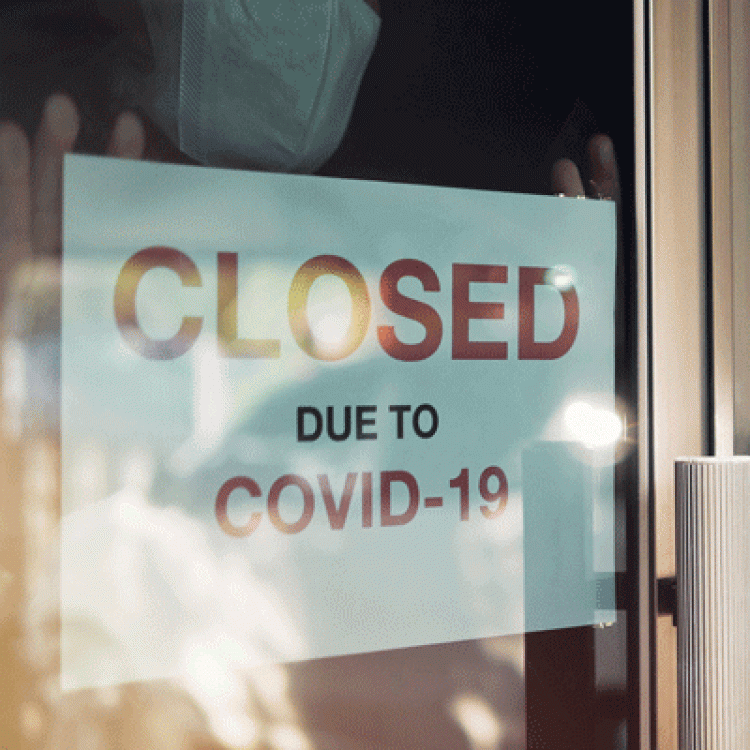Coronavirus: Safety measures for businesses forced to temporarily close premises

Many industrial or commercial facilities have had to shutdown as the outbreak brings a halt to operations. However, risks, and the potential for losses, still remain, even when sites are idle or largely unoccupied. Allianz Global Corporate & Specialty’s (AGCS) risk consultants highlight some steps companies can take to reduce the chances of things going wrong and to mitigate their impact if they do.
The coronavirus outbreak has caused devastation and disruption around the globe. In addition to the significant human cost, businesses have also been increasingly affected by the growing number of restrictions on public life that have been rightly imposed by authorities, but which have had the knock-on effect of companies having to shut down their operations, meaning premises and sites can be idle or largely unoccupied for an unexpected period of time. In response, AGCS’ Allianz Risk Consulting (ARC) unit has produced a new publication which provides an overview of general security and prevention measures to help companies prevent physical damages in industrial or commercial facilities that have had to close due to the coronavirus.
“Short-term shutdowns have fast become the norm in many sectors, but companies still have to be vigilant about the risk environment,” says Nicolas Lochet, Regional Technical Manager, ARC at AGCS. “The potential for losses resulting from fires or inadequate maintenance remains and such threats need to be effectively managed and mitigated.
“Businesses should pay particular attention to the condition of electrical equipment and installations, as around 20% to 30% of fires we see are related to these. Meanwhile, inadequate/ postponement of maintenance of equipment during a shutdown can result in a loss occurring at the worst possible time for a business – when it is finally able to restart operations.“
AGCS risk consultants focus on four main areas of loss prevention measures in the publication: mitigating the risk of a fire occurring; safe storage of combustible materials and liquids; guidance for services and utilities; and building security and maintenance best practice:
Mitigating fire risk
AGCS analysis of insurance industry claims shows that fires accounts for almost a quarter (24%) of the value of all business insurance claims over a five-year period[1]. Such incidents have caused in excess of €14bn worth of insurance losses from over 9,500 claims. The impact of such an incident can be exacerbated if premises are shutdown or largely unoccupied, as the response time may not be as quick. Measures for businesses to consider include regularly inspecting and testing any existing automatic fire detection systems, sprinkler systems and fire pumps – another AGCS checklist offers detailed guidance in these areas – even if the challenges posed by coronavirus makes this difficult.
Safe storage of combustible materials
Businesses should also consider reducing the quantities of combustible materials, such as raw and finished goods, packaging, pallets, waste, dust and flammable liquids, located inside any shutdown buildings by as much as possible, and ensure safe separation distances (1.5 m or 5 ft minimum) are maintained between all electrical equipment and any materials which remain. In addition, all combustible and flammable liquids should be placed in appropriate storage areas if possible.
Services and utilities
Businesses should consider shutting down all hazardous process equipment and utilities, including non-essential flammable liquid and gas mains. If operationally possible, they should also look at shutting down electricity for the premises, except where needed for fire alarms, fire protection systems and security systems. Consider isolating services at the mains and drain all water systems, except water for fire sprinklers and pumps.
Building security and maintenance
ARC engineers note businesses should consider ensuring quality deadlocks are fitted on all entry/exit doors and checking that all windows are secured if premises are shutdown or unoccupied. Entry points should also be locked and secured to prevent unauthorized vehicles from entering the site. All security systems should also be checked and maintained and shutting down all non-essential electrical should be considered. If possible, businesses should keep only the minimum level of internal and external lighting where appropriate for inspection, security patrols and access purposes. Any breach in building or perimeter security should be immediately repaired. If possible, companies should arrange for a manned 24/7 guarding presence at the site or overnight patrols.
You can download the full publication here.
[1] Allianz Global Corporate & Specialty, Based on an analysis of 470,000 claims from over 200 countries over the past five years (July 2013 to July 2018) with an approximate value of €58bn (US$66.5bn).
